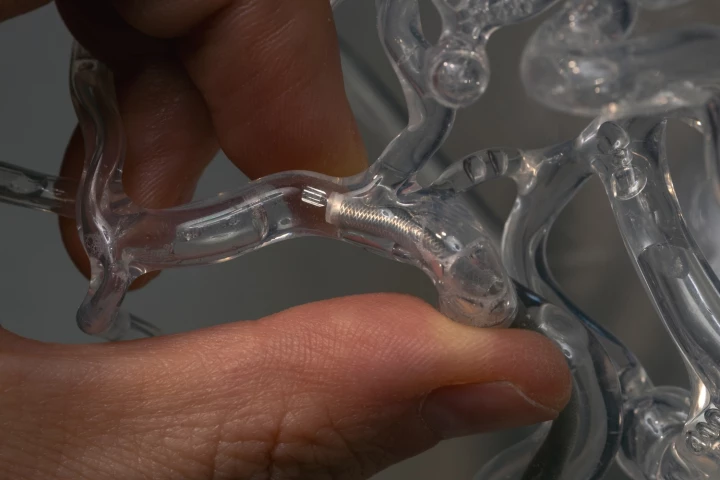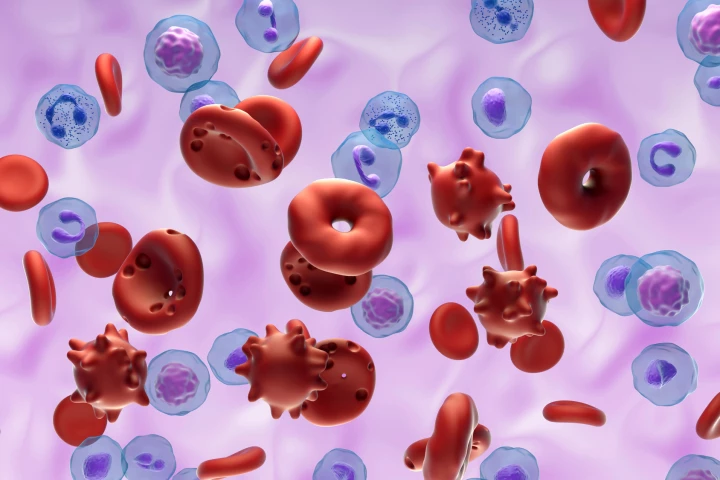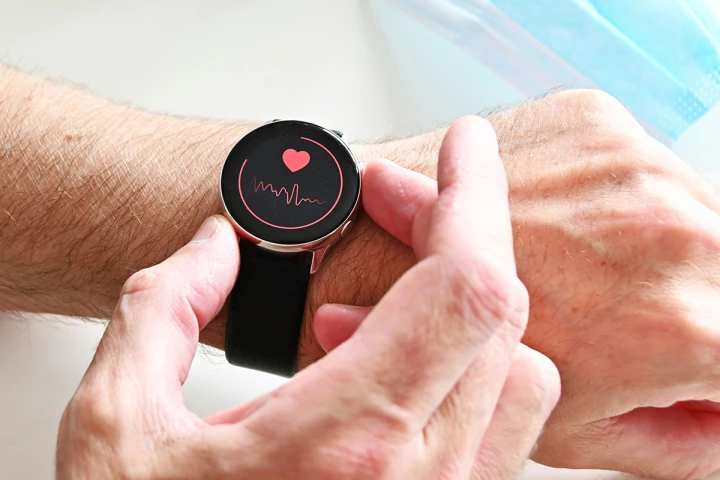Heart attack
-
In 2025, around 24 million Americans are estimated to suffer from sleep apnea, and around 90% of these cases are undiagnosed. Now, a groundbreaking new study warns that the prevalence of this serious condition will soar as the planet warms.
-
When trying to remove life-threatening clots from blood vessels, current technologies are successful on only about half of the first attempts – if at all. A new surgical tool, however, is claimed to boost that figure to an astounding 90%.
-
Researchers have identified a previously unknown biological process that causes tissue damage in conditions where oxygen is low, such as heart attacks and strokes. The study suggests that bursting red blood cells, not blood clots, are the culprits.
-
Researchers have developed technology to detect heart attacks in real time with a high degree of accuracy, and packed it into a chip that could fit in a wearable device. The team hopes it may someday feature in life-saving medical gadgets.
-
If someone is afflicted with heart disease, it's important that their cardiac activity be monitored as accurately as possible. An experimental new wearable device is designed to make that happen, by copying the body structure of the starfish.
-
Type 1 diabetics have a lower risk of stroke and heart attack than type 2 diabetics, a new study has found. It highlights the fundamental difference between the two conditions and provides insights that could guide future treatment.
-
A new study has discovered the reason why men tend to sustain more heart muscle damage following a heart attack than women: the hormone testosterone. The researchers have also discovered a potential fix in the form of an existing drug.
-
Most people know that body fat stored around the midsection can spell disaster for cardiovascular health. But Harvard researchers have now discovered another problematic fat-storage location in the body that's been largely overlooked.
-
Heart attacks are dangerous not just because of the initial event, but the long-term damage afterwards. Now scientists have discovered a dormant gene that could be reactivated to regenerate heart tissue, preventing the progression to heart failure.
-
In an analysis of the sleep habits of over 72,000 people, researchers identified a particular pattern that can dramatically spike the risk of major cardiovascular problems. The good news is that the pattern is relatively easy to avoid.
-
Finding time to exercise each day is a challenge for many people, but a new study of nearly 15,000 men and women has discovered that adding just five minutes of daily activity that gets your heart rate up is enough to lower your blood pressure.
-
Scarring of heart tissue can be slowed but not stopped, and can lead to heart failure. But a new study has shown that an existing immunotherapy could stop scar tissue formation after heart attacks.
Load More











